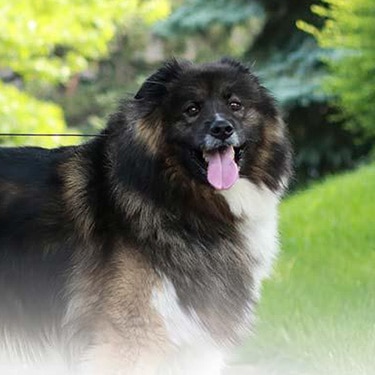
-
Find the right food for your petTake this quiz to see which food may be the best for your furry friend.Find the right food for your petTake this quiz to see which food may be the best for your furry friend.Health CategoryFeatured products
 Adult Light Large Breed Chicken Meal & Barley Recipe Dog Food
Adult Light Large Breed Chicken Meal & Barley Recipe Dog FoodFewer calories for less active large breed dogs
Shop Now Hill's Science Diet Adult Healthy Mobility Large Breed Chicken Meal, Barley & Brown Rice Recipe Dog Food
Hill's Science Diet Adult Healthy Mobility Large Breed Chicken Meal, Barley & Brown Rice Recipe Dog FoodAdvanced nutrition shown to support joint health and improve mobility
Shop Now Adult Large Breed Chicken & Barley Recipe Dog Food
Adult Large Breed Chicken & Barley Recipe Dog FoodSupports healthy joints, lean muscle, and beautiful coat for large breed dogs
Shop NowFeatured products Kitten Healthy Cuisine Tender Chicken & Rice Medley
Kitten Healthy Cuisine Tender Chicken & Rice MedleyDelicious tender chicken and rice in a mouthwatering sauce with precisely balanced nutrition to support 5 essential building blocks for lifelong health
Shop Now Adult Perfect Digestion Chicken, Barley & Whole Oats Recipe Cat Food
Adult Perfect Digestion Chicken, Barley & Whole Oats Recipe Cat FoodHill's Science Diet's breakthrough nutrition supports ultimate digestive well-being & healthy microbiome
Shop Now Adult Oral Care Chicken & Brown Rice Recipe Cat Food
Adult Oral Care Chicken & Brown Rice Recipe Cat FoodClinically proven kibble technology to reduce plaque & tartar build-up
Shop Now -
DogCat
- Cat Tips & Articles
-
Health Category
- Weight
- Skin & Food Sensitivities
- Urinary
- Digestive
- Kidney
- Dental
- Serious Illness
-
Life Stage
- Kitten Nutrition
- Adult Nutrition
Featured articles Fun Ideas for Kids and Pets This Summer
Fun Ideas for Kids and Pets This SummerOutdoor summer activities with your dog or cat can be fun for kids, too. Learn how they also teach kids responsibility & creates a bond with their pet.
Read More Cat vs. Dog: Which Is the Best Pet for Me?
Cat vs. Dog: Which Is the Best Pet for Me?Learn about important differences between dogs and cats, such as cost & space considerations. These factors can help you decide which pet is best for you.
Read More Adopting a Pet: What You Need to Know
Adopting a Pet: What You Need to KnowLearn the basics of adopting a pet, including where to begin and common questions you should ask yourself when deciding which kind of pet is best for you.
Read More -


It's the last thing a new pet parent wants to hear from the veterinarian: your puppy has parvovirus.
Parvo, especially in puppies, is an extremely contagious and potentially fatal gastrointestinal illness. Young dogs are most at risk of symptoms associated with parvo because they have not yet been vaccinated against the illness. Parvovirus, also known as B19 virus, is believed to have originated from a similar virus that infects cats and some wild animals (like raccoons and minks) that mutated. The first cases of parvo in puppies was diagnosed in the late 1970s.
Here's all you need to know about this virus and how it can be treated and prevented.
Which Dogs Are Most Likely to Get Parvo?
Puppies aged six weeks to six months are most susceptible, as are any dogs who are unvaccinated or incompletely vaccinated, according to Toronto Veterinary Emergency Clinic veterinarian Kelly D. Mitchell, who wrote about canine parvovirus in the Merck Veterinary Manual. She also said specific breeds are more at risk, including:
Dogs younger than six weeks are generally protected from parvo by antibodies in their mother's milk.

What Are the Signs and Symptoms of Parvo?
If your dog has parvovirus, you will generally start seeing signs three to ten days after exposure. Common signs and symptoms that your puppy may have parvo include:
- Extreme lethargy
- Vomiting
- Diarrhea (usually bloody)
- Fever
Dogs get incredibly dehydrated from symptoms associated with parvo. The virus also can damage a dog's intestinal walls, causing life-threatening issues like a drop in the white blood cell count, sepsis and anemia. It is important that you take your dog to the vet immediately if you suspect he might have parvo. Time is one of the most important factors for survival.


Tasty Tips
How Does a Dog Get Parvo?
The virus is highly contagious and is passed orally, generally from feces or infected soil. The parvo virus is very strong and can survive two months or more indoors or in soil. It is resistant to heat, cold, humidity and drying.
"Even trace amounts of feces from an infected dog may harbor the virus and infect other dogs that come into the infected environment. The virus is readily transmitted from place to place on the hair or feet of dogs or via contaminated cages, shoes, or other objects," the American Veterinary Medical Association warns.
Parvo also lives in the feces of dogs who have had the illness for several weeks. Because of the strength and severity of the disease, it is important to decontaminate any areas that might have been exposed to the virus and make sure a dog that has had parvo is isolated from puppies or unvaccinated dogs. Talk to your vet about steps you can take if your dog has been exposed.
How Is Parvo Treated?
Dogs who have parvovirus are typically hospitalized for treatment, which include IV fluids, anti-nausea medications, and antibiotics. Your vet will likely ask you to continue your dog on oral antibiotics after hospitalization as a way to help weakened dogs fight off secondary infections.
As mentioned above, it is incredibly important to seek out medical treatment as soon as possible if you suspect your dog has parvo. Dr. Mitchell writes that with appropriate and timely care, 68 to 92 percent of dogs with parvo will survive. She also says puppies that get through the first three to four days of illness tend to make a full recovery.
What Can Be Done to Prevent It?
Puppies should be vaccinated as soon as they're old enough. In addition, owners of dogs that have not been vaccinated should exercise extreme caution in taking their pup places where exposure may be more likely, such as a dog park. If your dog has been exposed, isolate him until the vet tells you the threat of contagion is over. Inform your neighbors as well. Their dogs can be exposed to parvo by simply walking through your yard.
There's no getting around it: Parvovirus is a scary, deadly illness in dogs, especially puppies. You can mitigate your dog's chances of contracting parvo through responsible pet ownership, attentiveness and prompt veterinary care.


Kara Murphy is a freelance writer and pet parent who lives in Erie, Pa. She has a goldendoodle named Maddie.
Related products

Supports healthy joints, lean muscle, and beautiful coat for large breed dogs

Fewer calories for less active dogs

Fewer calories for less active large breed dogs

Advanced nutrition shown to support joint health and improve mobility
Related articles

A little exercise can make a big difference. Not only will it enhance your pet’s health, but it will beef up your relationship as well.

Learn about choosing the right dog food to help ensure your mature older dog will receive the correct balance of nutrition.

Though it may seem like your four-legged friend loves nothing more than to nap on the couch, dogs need regular exercise to stay healthy just like people do.

Learn how to stop your dog from begging at the dinner table, and understand how it can help contribute to his health.

Put your dog on a diet without them knowing
Our low calorie formula helps you control your dog's weight. It's packed with high-quality protein for building lean muscles, and made with purposeful ingredients for a flavorful, nutritious meal. Clinically proven antioxidants, Vitamin C+E, help promote a healthy immune system.
Put your dog on a diet without them knowing
Our low calorie formula helps you control your dog's weight. It's packed with high-quality protein for building lean muscles, and made with purposeful ingredients for a flavorful, nutritious meal. Clinically proven antioxidants, Vitamin C+E, help promote a healthy immune system.

